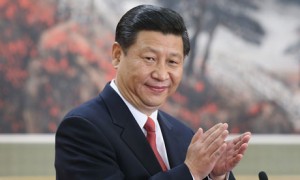The Reuters article highlights the increasing number of corruption convictions occurring in China. Since 2008, China has convicted nearly 150,000 people. Not only that, but approximately 66,000 people have been accused of accepting bribes while 23,000 were accused of soliciting bribes. I would guess the bribe aspect is a component of the cultural system of guanxi, not properly explained in the article. Either way, this trend in cracking down on corruption is a positive signal. Even more so, since President Xi Jinping has labeled corruption a “threat” to the communist party’s survival.
Illuminated in John L. Thornton’s piece “Long Time Coming,” as well as Professor Sanborn’s lecture, corruption is a key aspect in assessing democracy in China. Thornton explains that different Chinese leaders have frequently used the word “democracy,” but they rarely are using the term in the same capacity. Most recently, Hu Jintao—Xi Jinping’s predecessor—explained that he considered democracy to be the “common pursuit of mankind” (3), and the ex-Premier Wen Jiabao further explained that democracy, as the CCP refers to it, commonly entails “three components: elections, judicial independence, and supervision based on checks and balances” (4). At its core, a fundamental issue for all three of these components is corruption. Professor Sanborn, pointed out that the majority of people found local governments to be corrupt, inherently hindering the three factors outlined by Premier Wen.
Thornton, however, does highlight a survey of approximately 700 local officials in 2004, which addresses their current opinions about democracy in China. The poll revealed that greater than 60 percent were dissatisfied with both the current state of democracy as well believed that political reforms were moving slowly (20). A decade later, although still not a democracy, corruption—a key factor—has become a pressing issue. As this article articulates, 150,000 officials in half a decade is a significant amount. President Xi’s reiteration of the importance to ameliorating corruption-related issues further reinforces the belief that China is moving, albeit slowly, in the direction towards their image of democracy, an ostensibly positive development.
Works Cited
China convicts nearly 150,000 for corruption since 2008
“Long Time Coming: The Prospects for Democracy in China” by John L. Thornton
Corruption in China is certainly a problem, regardless of the mistaken Chinese perspective that Professor Sanborn’s presentation highlighted, which said that the Chinese overwhelmingly believe their national government is not corrupt. As Hessler said of the Chinese culture, the law is secondary to what you can try and get away with. I think that from an economics perspective, the most important aspect of democracy is fair rule of law. With equal application of the rule of law comes certainty, which is good for economic growth.